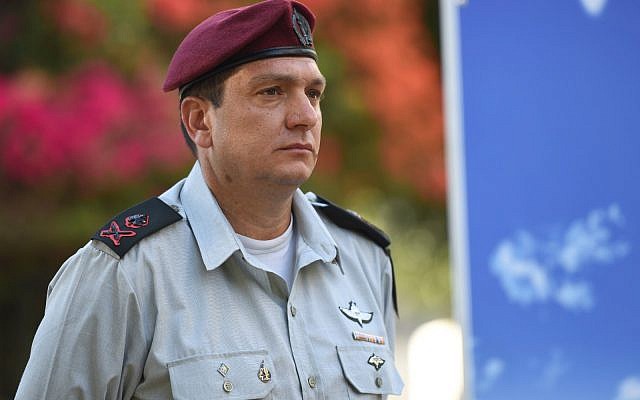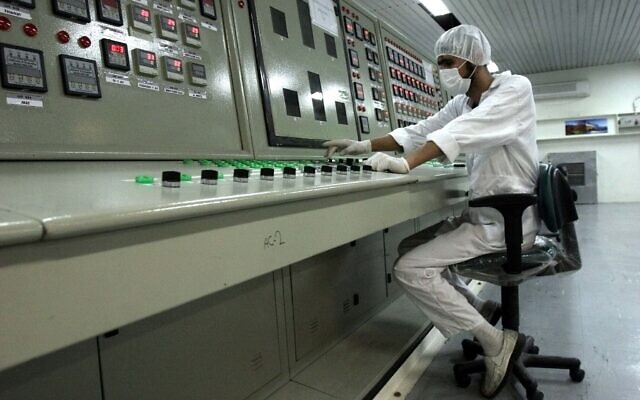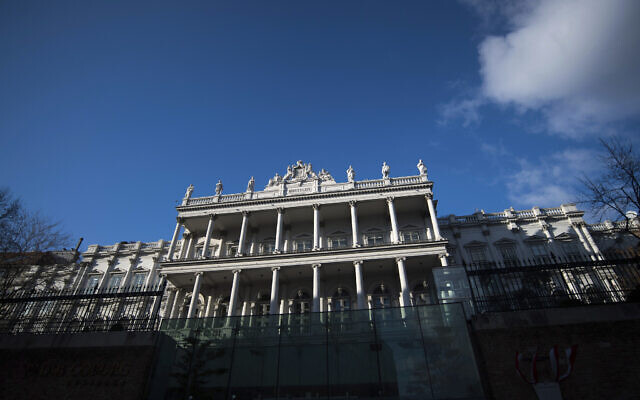Maj. Gen. Aharon Haliva quoted telling ministers that an agreement would increase certainty about limits on Tehran’s nuclear work, better position Israel for a possible escalation

The head of Military Intelligence reportedly told the high-level security cabinet that it would be better for Israel if a deal is reached to curb Iran’s nuclear program in exchange for sanctions relief, appearing to break with the government’s position that the failure of talks is preferable to anything but a significantly bolstered pact.
Citing two unnamed ministers who took part in the meeting this week, the Walla news site reported Tuesday that Maj. Gen. Aharon Haliva said restoring the 2015 nuclear agreement would provide greater certainty about the limitations on Iran’s atomic activities than if talks between Iran and world powers fall apart.
He also reportedly said a revival of the accord would give Israel more time to prepare for various scenarios of escalating tensions with Iran, and that the Jewish state would be in a better position to gear up for such possibilities.
The news site said the Israel Defense Forces refused to comment.
According to the report, Haliva’s comments were in response to Mossad chief David Barnea, who did not express support for a restored nuclear deal and told ministers he believed there was still time to influence the United States regarding the conditions for an agreement.
“It’s not lost and it’s worth investing time and effort in a dialogue with the Americans about the contents of the agreement,” Barnea was reported as saying.

Israel’s government had vociferously opposed talks aimed at restoring the pact, but in recent weeks, officials have signaled a shift toward accepting a deal in some form.
Last month, Foreign Minister Yair Lapid said Israel is not opposed in principle to any deal that may be reached between world powers and Iran.
“We have no problem with a deal. A good deal is a good thing,” he told The New York Times last month.
“Second best would be no deal but tightening the sanctions and making sure Iran cannot go forward. And the third and worst is a bad deal,” he added.
Lapid did not detail what a good or bad deal would constitute, beyond removing so-called sunset provisions from the 2015 deal that allow safeguards to expire in 2025, and having the pact block Iran from ever building a nuclear weapon.
The US State Department’s spokesman on Tuesday reported “modest progress” at last week’s nuclear talks in Vienna.
Former US president Donald Trump withdrew the US from the accord in 2018 and reimposed sanctions on Iran, which in turn ramped its nuclear work in violation of the 2015 pact. The Biden administration is looking to rejoin the deal but has conditioned doing so on Iran returning to compliance.
“There was some modest progress in the talks last week. We hope to build on that this week,” Ned Price said during a phone briefing with reporters, according to Reuters.
He added: “Sanctions relief and the steps that the United States would take… when it comes to sanctions together with the nuclear steps that Iran would need to take if we were to achieve a mutual return to compliance with the JCPOA — that’s really at the heart of the negotiations that are ongoing in Vienna right now.”

Negotiations to restore the 2015 accord between Tehran and world powers (United States, France, Britain, Russia, China, and Germany) began last year but stopped in June as Iran elected ultraconservative President Ebrahim Raisi.
The talks resumed in late November and the latest round was set to formally get underway on Monday after a three-day break for the end of year holidays.
As reported by The Times of Israel
